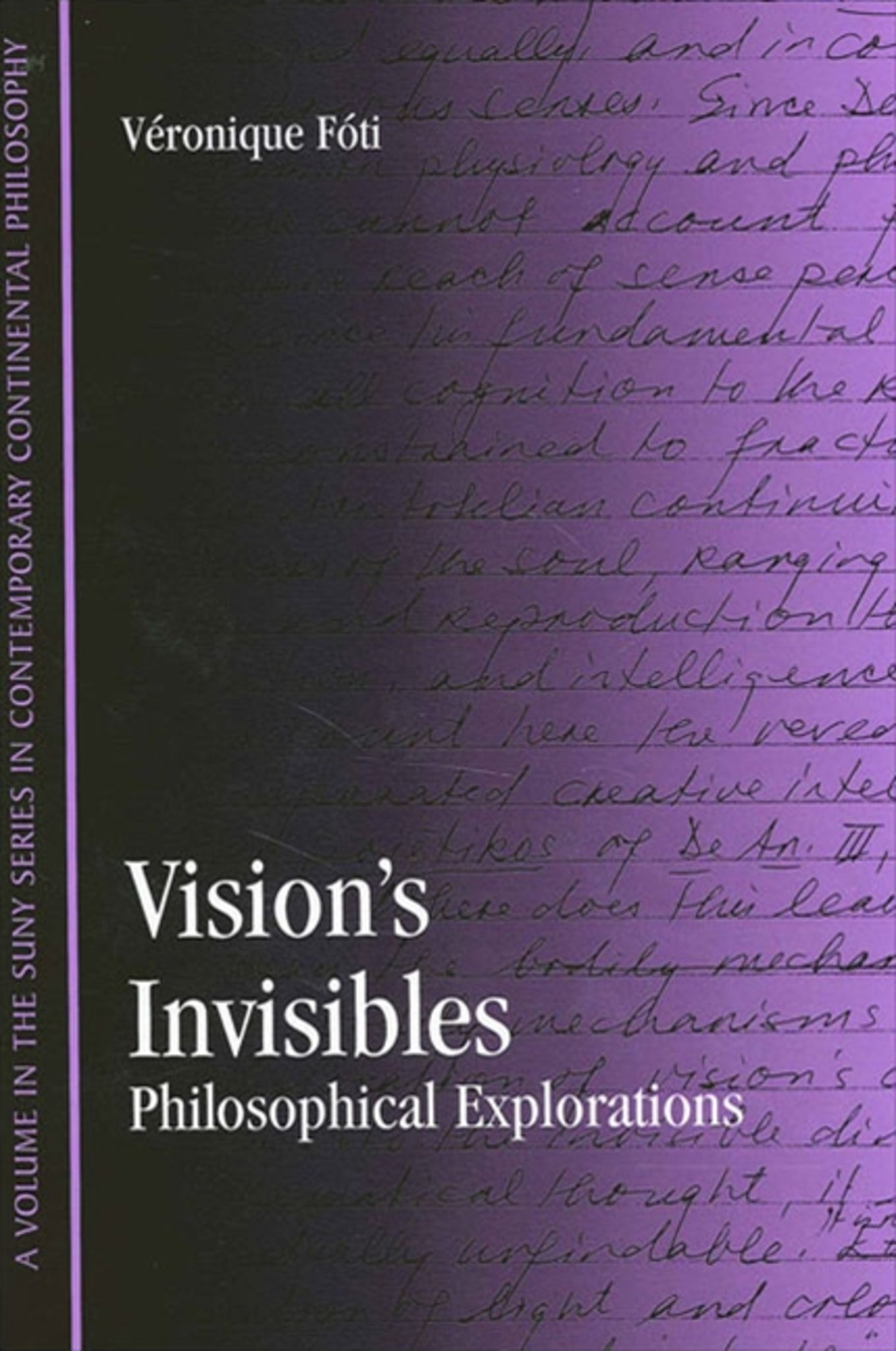We're sorry. An error has occurred
Please cancel or retry.
Vision's Invisibles

Some error occured while loading the Quick View. Please close the Quick View and try reloading the page.
Couldn't load pickup availability
- Format:
-
02 July 2003

Examines the construction of vision in the works of Heraclitus, Plato, Descartes, Heidegger, Merleau-Ponty, Foucault, Nancy, and Derrida.
Although philosophy today has abandoned its former fascination with transcendent invisibles, it has left largely unexamined historical articulations of the divide between 'the visible' and 'the invisible.' Vision's Invisibles argues that such a self-examination is necessary for the sensitization of philosophical sight, as well as for engagements with visuality in other domains. To this end, it investigates a range of challenging understandings of visuality in its relation to invisibles, as articulated in the texts of key historical thinkers-Heraclitus, Plato, and Descartes-and of twentieth-century philosophers, including Foucault, Merleau-Ponty, Nancy, Derrida, and Heidegger.


"Fóti is one of the few commentators whose knowledge ranges widely across the history of philosophy. The scholarship and interpretive care in this book are superb. Fóti offers provocative readings of Plato's treatment of sensuous being, particularly in the Phaedrus. Her chapter on Velásquez is an excellent example of philosophical art criticism; her critique of Foucault is also quite trenchant. Fóti offers a fresh appreciation of Merleau-Ponty, and her analysis of Heidegger's notion of Besinnung invites a real rethinking of the meaning of art in reflections on the visible and the invisible. By concentrating on how the visible and the invisible vex philosophy's traditional categories and priorities, Fóti develops ways of thinking outside technology, mastery, and representation." — Julie R. Klein, Villanova University
Acknowledgments
Prospect
PART I. GREEK PHILOSOPHY
1. Glimpsing Alterity and Differentiation: Vision and the Heraclitean Logos
2. Beauty, Eros, and Blindness in the Platonic Education of Vision
PART II. THE LEGACY OF DESCARTES
3. Mechanism, Reasoning, and the Institution of Nature
4. The Specularity of Representation: Foucault, Velázquez, Descartes
PART III. POST-PHENOMENOLOGICAL PERSPECTIVES
5. The Gravity and (In)Visibility of Flesh: Merleau-Ponty, Nancy, Derrida
6. Imaging Invisibles: Heidegger's Meditation
Retrospect
Notes
Selected Bibliography
Index of Persons
Index of Topics



